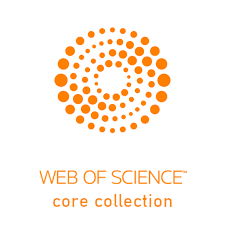TPA Publishing Ethics
This ethics policy disciplines the relationships between the various agents in the
publication of scientific articles – authors, reviewers, editors, members of the
editorial board, reviewers etc. Teoria e Prática em Administração (TPA) is
committed to practicing and disseminating ethical conduct according to the
patterns established by national and international institutions that regulate ethics
and integrity standards for scientific publications. TPA Publishing Ethics consists
of guidelines for authors, reviewers, editors and publisher:
1. Guidelines for authors
- The authors must guarantee the integrity of the data presented and the
authenticity and originality of their manuscript;
- The authors must state that their manuscript does not infringe on any third party
intellectual property, commercial or industrial rights;
- The authors guarantee that their manuscript is not undergoing an evaluation
process at another periodical;
- The authors declare any potential conflicts of interest that may be caused by their
manuscript;
- The author who submits the manuscript must declare that all other authors who
signed the work to be published made effective contributions to its creation and
preparation.
2. Guidelines for reviewers
- Reviewers must guarantee confidentiality, impartiality and integrity in evaluating
the manuscript;
- Reviewers must agree to complete the evaluation within the timeframe agreed to
with the editor;
- Reviewers must notify the editor about any possible conflicts of interest that
could prejudice the integrity of the evaluation process, or about any similar
published or submitted works.
3. Guidelines for the Editor-in-Chief (EIC)
- The EIC must ensure that ethical conduct was followed in all processes involving
the submission, double blind review process and publication of articles;
- The EIC must ensure quality, originality, rigor, coherence, and diversity of
thought in the works approved for publication;
- The EIC must guarantee the viability and development of the journal together
with the scientific, academic and business community;
- The EIC must manage conflict of interest for the various actors who participate in
the scientific certification and publication process;
- The EIC must define and put in place preventive policies and sanctions in
situations involving bad ethical conduct.
4. Guidelines for members of the Editorial Board (EB; Editorial Council,
Editorial Committee and Associate Editors
- The EB must ensure that ethical conduct has been followed in all the processes
involving the review and scientific certification of articles submitted for
publication;
- The EB must notify the EIC about similar published or submitted works and/or
any other information relevant to adhering to this publication’s ethical standards;
- The EB must ensure confidentiality, impartiality and integrity in evaluating
manuscripts;
- The EB must suggest suitable active reviewers with experience directly related to
the specific area of the article submitted for publication;
- The EB must ensure that they will contribute effectively to the improvement of
the paper, stimulating reviewers to assess the manuscript critically, offering
suggestions for improvement and complementing their respective reviews;
- The EB must agree to complete the evaluation in the timeframe agreed to with
the editor;
- The EB must notify the EIC about any possible conflicts of interest that would
prejudice the integrity of the evaluation process.
5. Guidelines for TPA (publisher)
- The publisher must assure that EIC, EB, and reviewers are aware of their roles as
promoters, defenders and followers of the TPA's Publishing Ethics to which they
must adhere;
- The publisher must assure ethical conduct in all of the journal’s processes
involving submission, double blind reviews and publication;
- The publisher must assure ethical conduct, integrity, impartiality, transparency
and agility in communicating with the various actors involved in the processes of
submitting, evaluating and publishing articles;
- The publisher must establish and manage policies regarding conflicts of interest
among the many actors who participate in the periodical’s scientific certification
and publication processes;
- The publisher must define and put into practice policies to prevent and institute
sanctions in cases of bad ethical conduct;
- The publisher must protect and preserve intellectual property rights.
Intellectual property
TPA commits itself to contributing to the protection of authors’ intellectual
property rights by adhering to the Creative Commons Attribution License (CC-BY)
for all published texts, except where there are indications of specific authors’ and
sponsorship rights.








